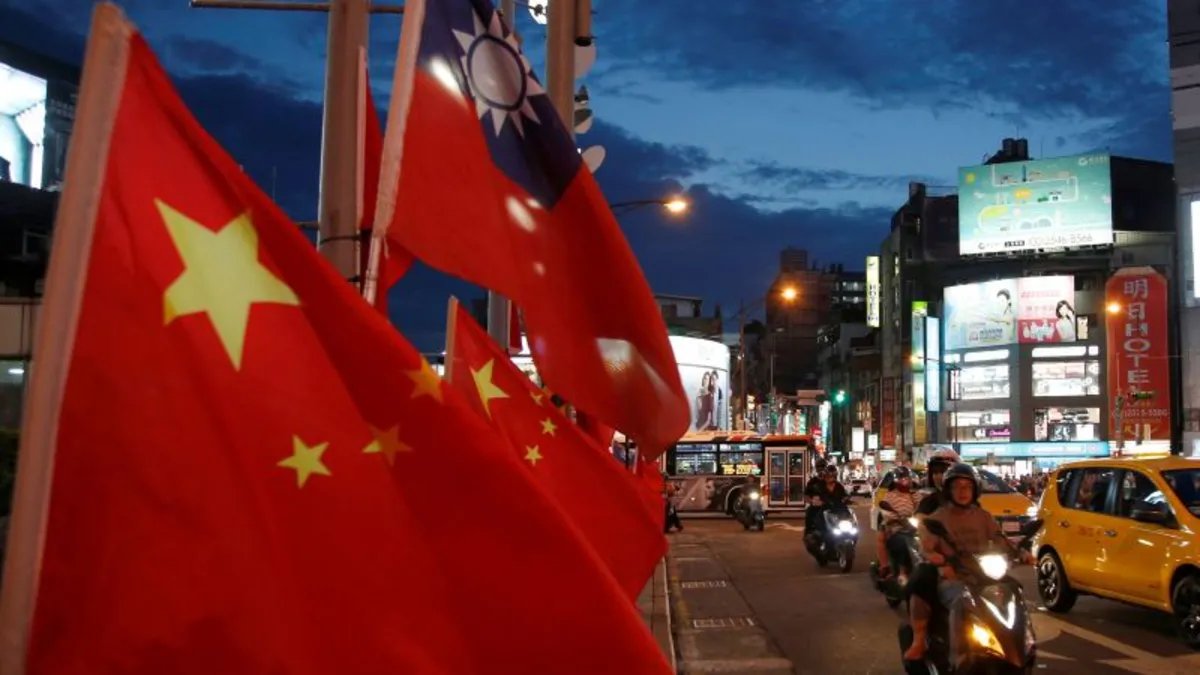
The Chinese military announced on Tuesday that it has initiated extensive joint military exercises involving its army, navy, air force, and rocket force aimed at “closing in on” Taiwan from various angles. This information was shared through a statement on the official social media account of the Eastern Theater Command. The drills primarily emphasize sea-air combat-readiness patrols, the joint seizure of comprehensive superiority, assaults on maritime and ground targets, and blockades of critical areas and sea lanes. These activities are designed to test and enhance the joint operations capabilities of China’s armed forces.
The People’s Liberation Army (PLA) has characterized these exercises as a “stern warning” and a robust deterrent against what it terms “Taiwan Independence” separatist forces. The PLA maintains that these actions are both legitimate and necessary for the protection of China’s sovereignty and national unity. China views Taiwan, a self-governing democracy, as part of its territory and has committed to reclaiming control of the island, if necessary, by military means.
In recent years, China has significantly increased its military activities around Taiwan, conducting regular patrols and exercises in the surrounding airspace and waters. Under the leadership of President Xi Jinping, this assertiveness regarding China’s territorial claims has become more pronounced. Major military exercises often reflect Beijing's dissatisfaction with Taiwan's stance and serve to gauge how Taiwan monitors and reacts to military pressures from the mainland.
China's military has previously conducted exercises encircling Taiwan, simulating a potential blockade of the island. Experts indicate that these tactics could be employed if Beijing decides to assert control over Taiwan through military action. Beijing frequently accuses Taiwan’s leadership of pursuing “independence” and has labeled Taiwan’s leader, Lai Ching-te, as a “separatist.” Following Lai's inauguration last year, large-scale military drills were initiated just days later as a show of force.
In response to Chinese intimidation, Lai has consistently advocated for Taiwan's sovereignty while also emphasizing the importance of maintaining peace and stability in the Taiwan Strait. Public opinion polls consistently reveal that the people of Taiwan, a vibrant and outspoken democracy, have no desire to be governed by China, which is recognized as an authoritarian one-party state.
The latest military exercises come on the heels of several incidents that have escalated tensions across the Taiwan Strait. Notably, in late February, Taipei detained a cargo ship crewed by Chinese nationals who were under investigation for allegedly severing an undersea internet cable. This incident marks the second similar occurrence within months. Additionally, Taiwan recently deported a Chinese influencer for advocating a military takeover of the island democracy by Beijing.
Taiwan has long been viewed as a potential flashpoint that could ignite conflict between China and the United States. The U.S. maintains unofficial relations with Taipei and is legally obligated to provide Taiwan with defense weapons. Washington has long adhered to a policy of strategic ambiguity regarding its commitment to defend Taiwan in the event of a Chinese incursion. Amidst these developments, Taiwan observes with apprehension as U.S. President Donald Trump reshapes global relationships through his “America First” foreign policy, shifting longstanding assurances towards Europe and pushing Asian allies to contribute more towards U.S. defense efforts.
This is a developing story, and updates will follow as more information becomes available.